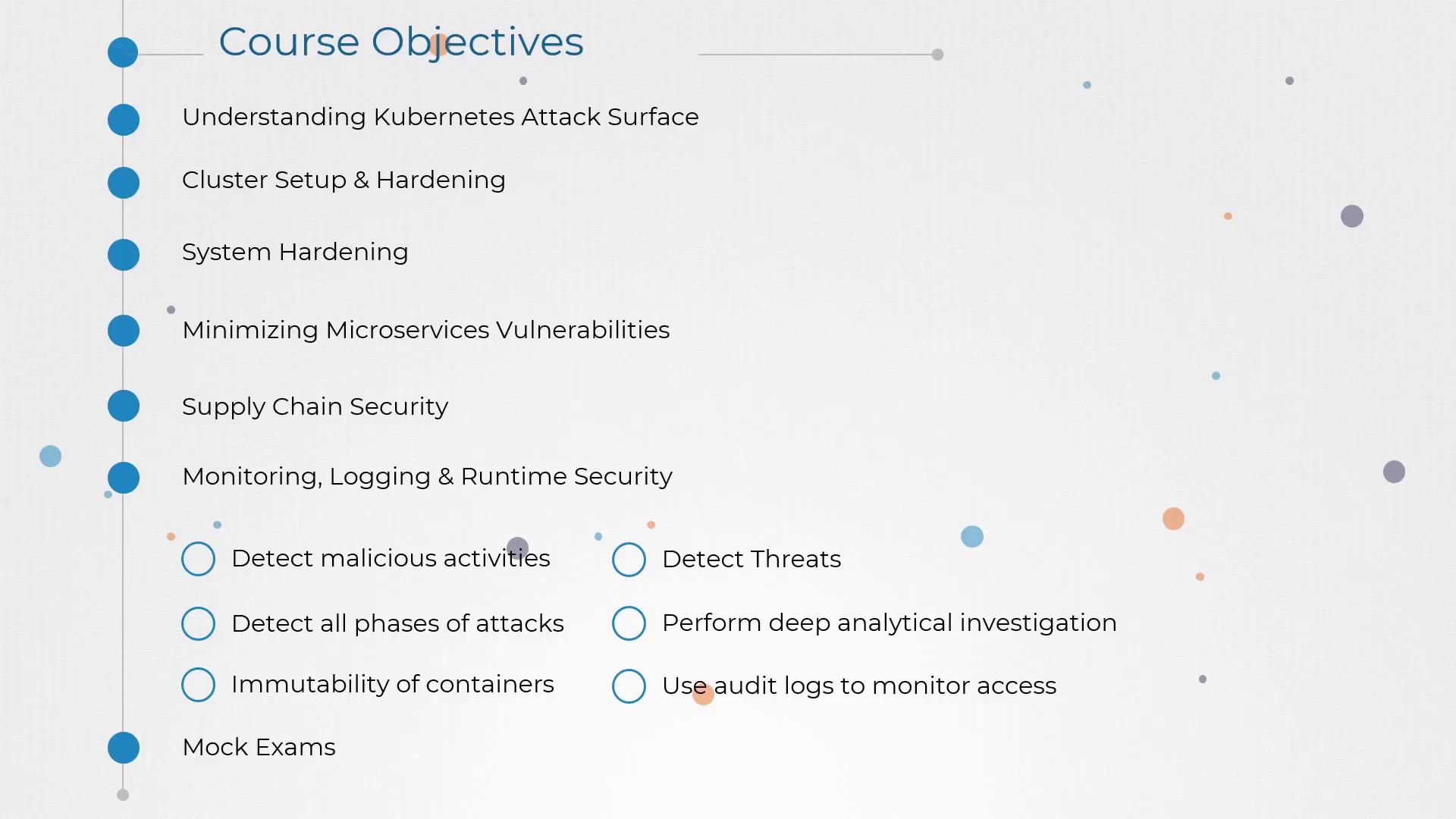Certified Kubernetes Security Specialist (CKS)
Monitoring Logging and Runtime Security
Section Introduction
In this article, we delve into the critical aspects of monitoring, logging, and runtime security, with a special focus on behavior analytics for system calls and file activities at both the host and container levels. Our approach is designed to detect malicious activities early and effectively, reinforcing your overall security posture.
We begin by exploring how tools such as Falco can help implement robust defense-in-depth strategies. These techniques ensure comprehensive threat detection by covering multiple components, including:
- Physical infrastructure
- Applications
- Networks
- Data
- Users
- Workloads
This expansive coverage guarantees that potential attacks are identified regardless of where they occur.

Note
The integration of multiple security layers—ranging from host-level system call monitoring to container runtime security—enhances your ability to quickly identify and neutralize threats.
Furthermore, we investigate advanced techniques for in-depth analytical investigations to identify malicious actors within dynamic environments. We also present methods to ensure the immutability of containers during runtime, thereby reducing the risk of unauthorized modifications.
Finally, the article discusses the implementation of Kubernetes audit logs. These logs are vital for monitoring access and improving security oversight by providing a clear view of system events.
By the end of this article, you will understand how to effectively leverage these tools and strategies to secure your infrastructure against evolving threats.
Watch Video
Watch video content